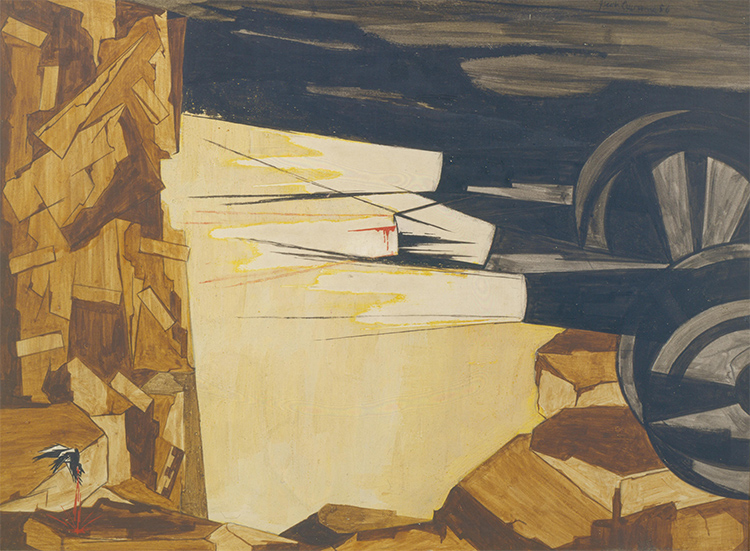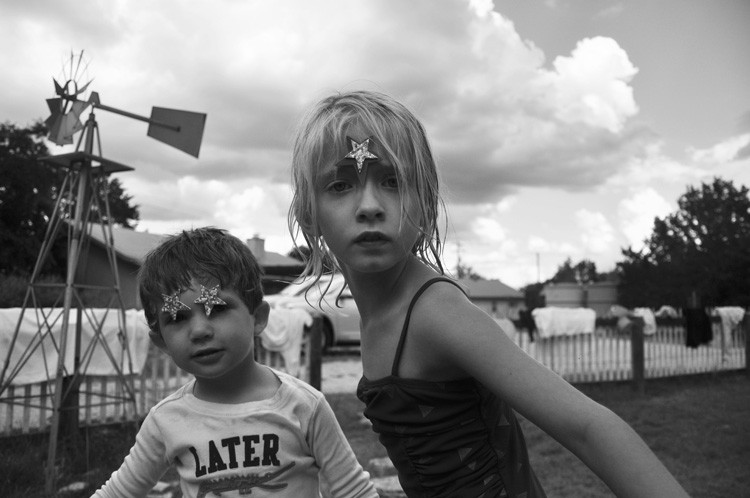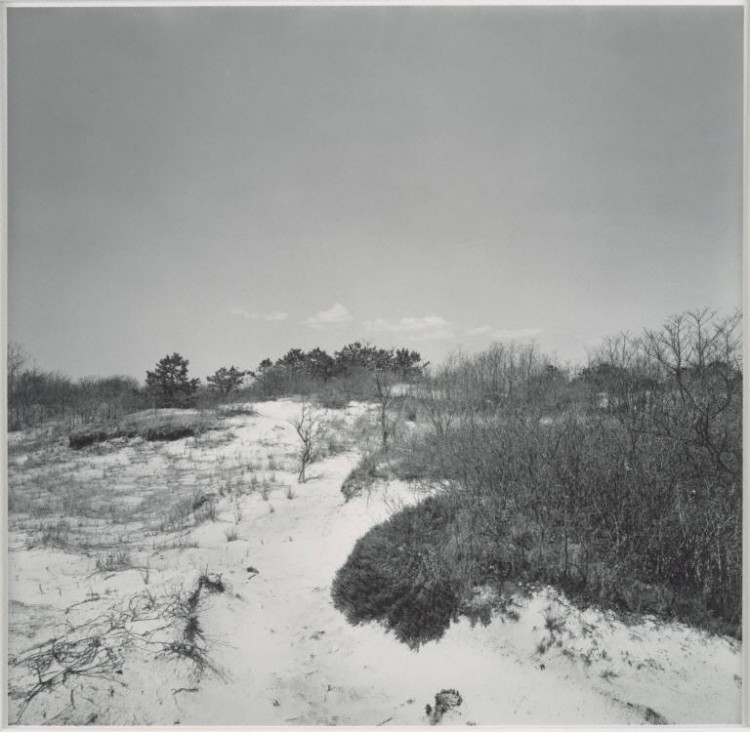This spring, former Phillips curator Beth Turner taught an undergraduate practicum at the University of Virginia focusing on Jacob Lawrence’s Struggle series. In this multi-part blog series, responses from Turner’s students in reference to individual works from the series will be posted each week.

Jacob Lawrence, Struggle … From the History of the American People, no. 24: Of the Senate House, the President’s Palace, the barracks, the dockyard…nothing could be seen except heaps of smoking ruins…—A British Officer at Washington, 1814 (Burning of Washington DC August 24, 1814), 1956. Egg tempera on hardboard, 16 x 12 in. Private Collection of Harvey and Harvey-Ann Ross. © 2015 The Jacob and Gwendolyn Knight Lawrence Foundation, Seattle / Artists Rights Society (ARS), New York
Of the Senate House, the President’s Palace, the barracks, the dockyard… nothing could be seen except heaps of smoking ruins– A British officer at Washington, 1814 (1956)
The War of 1812 moved to the capital when British troops arrived in Washington on August 24, 1814, without encountering much resistance. That evening, they began the systematic destruction of all public buildings, including the White House and the Capitol. It was said that the city was swallowed in flames that could be seen miles away.
Lawrence’s depiction of the Burning of Washington focuses on the violence and destruction with the canons firing against a dark, smoke-filled sky. A dash of red dripping from one of the cannons adds to the destructive nature of the scene. Off to the left corner of the panel is the corpse of a small bird, still bleeding. The only indication of what this panel is about comes from the title and the caption, which is a quote from a British soldier’s eyewitness account. This panel was completed in 1956, when the Montgomery bus boycott ended successfully. Prior to this successful conclusion, in February 1956, Martin Luther King’s house was bombed. An analogy can be made between the bombing of King’s house and the destruction of Washington in 1814. King was one of the central figures of the boycott; the bombing of his house with the intention of killing him was a certain attempt to cut off the source of inspirations and support of the African American communities to continue fighting for their rights.
Phuong Nguyen



